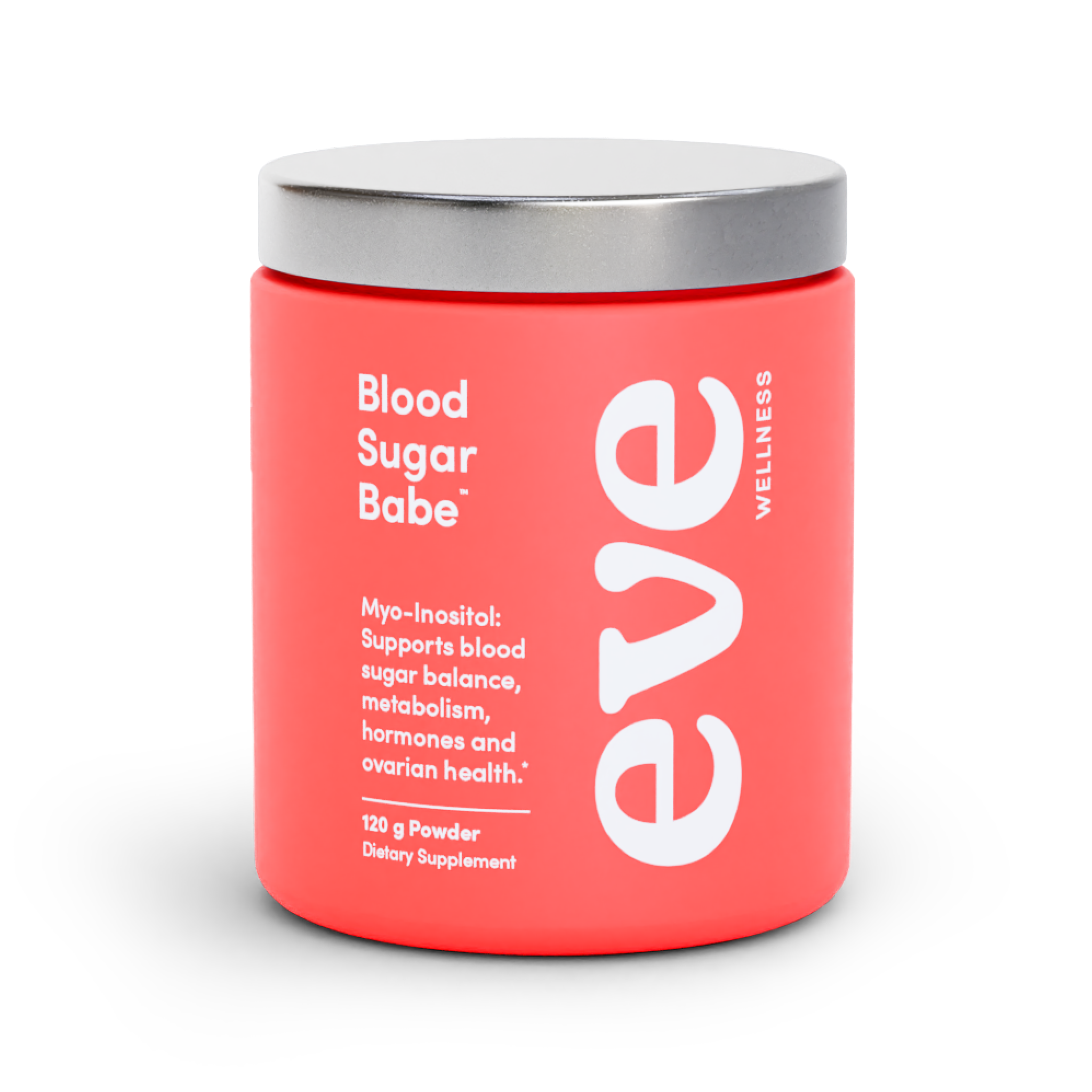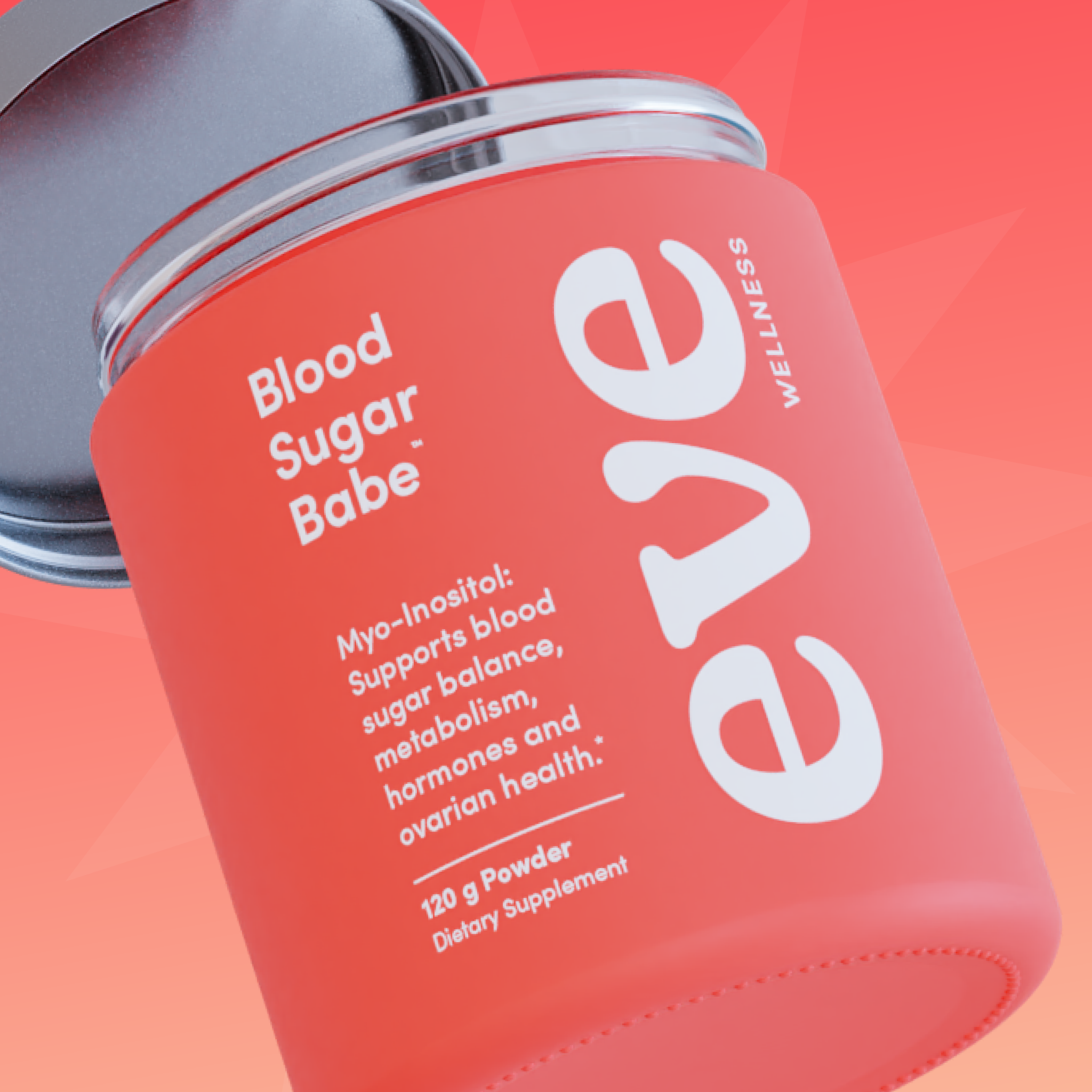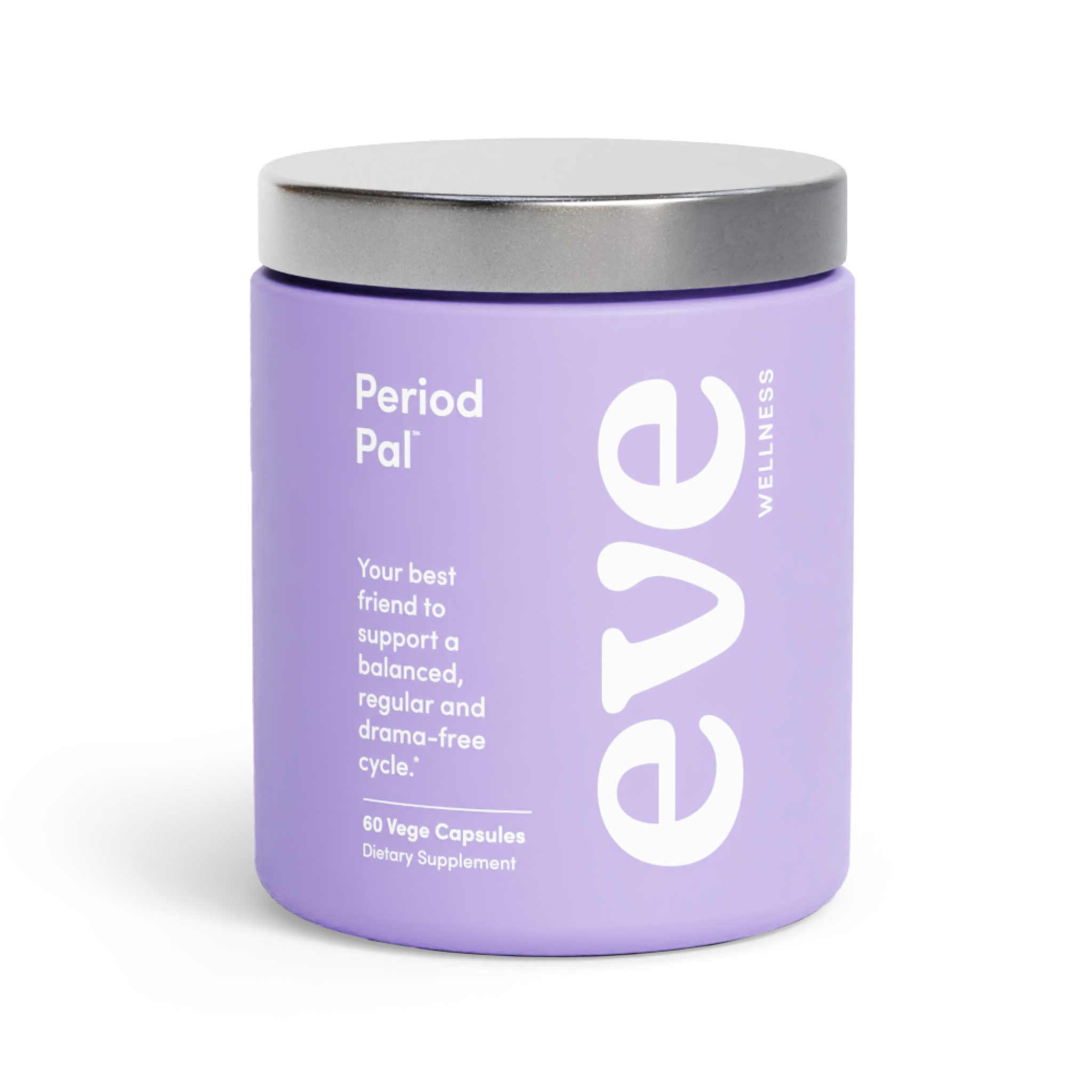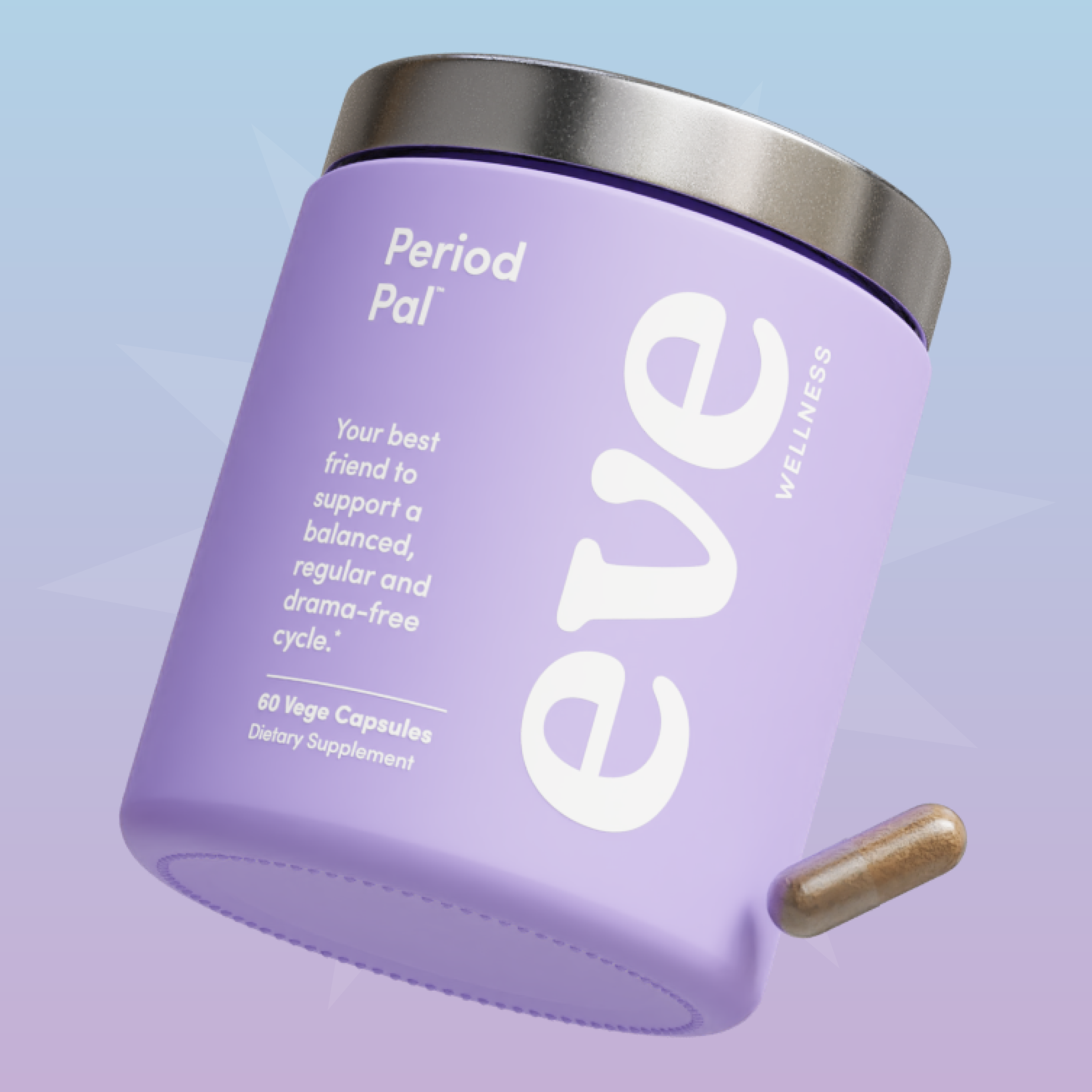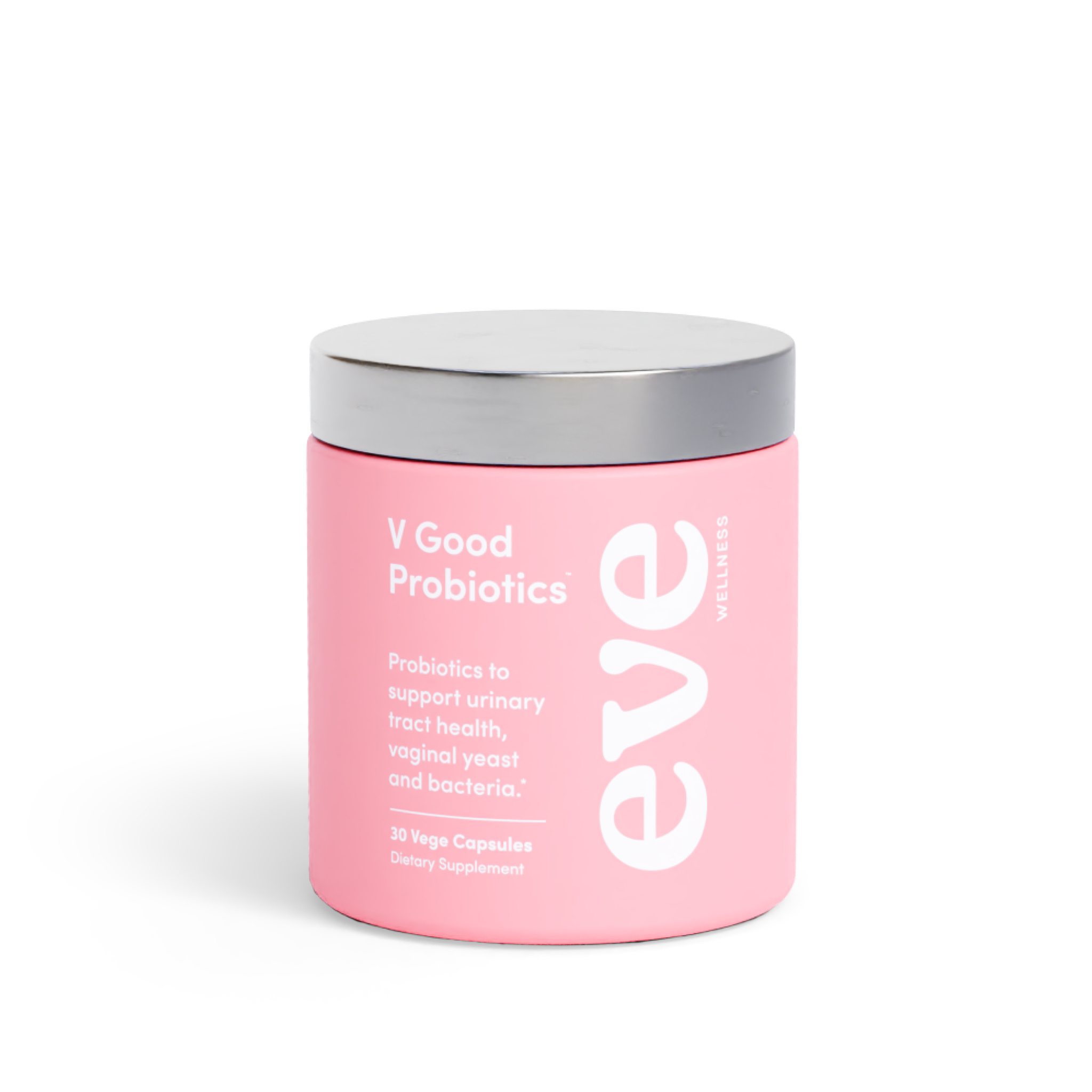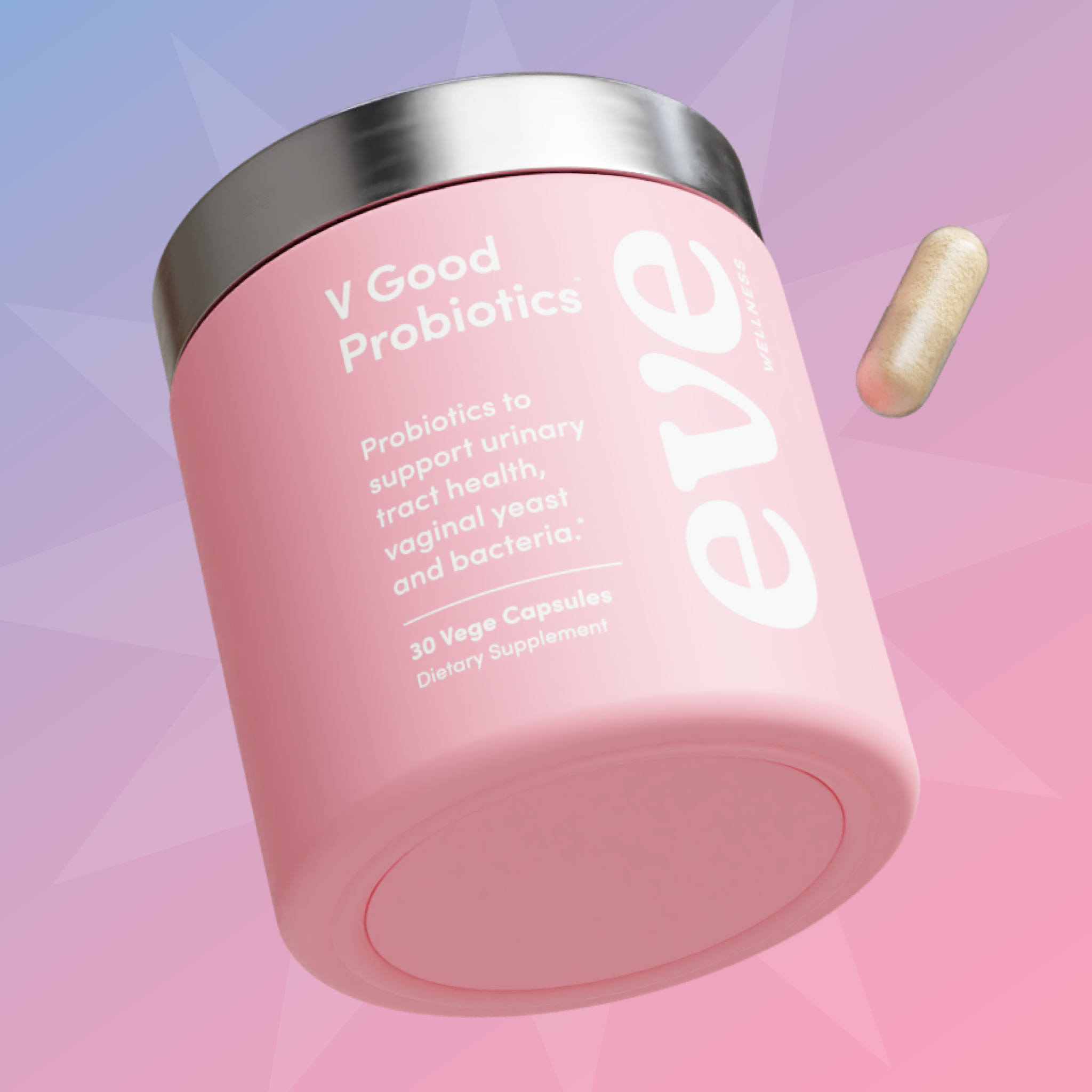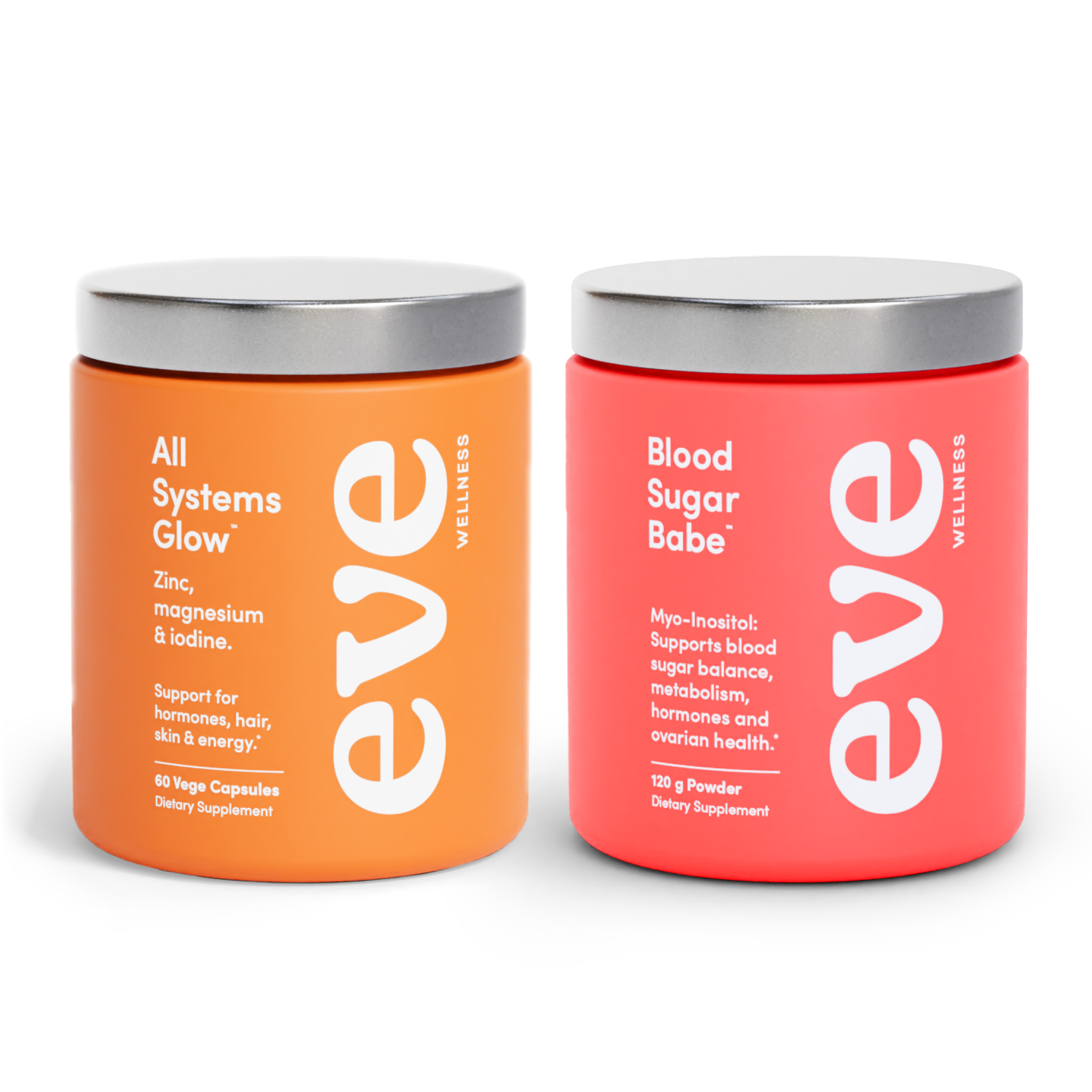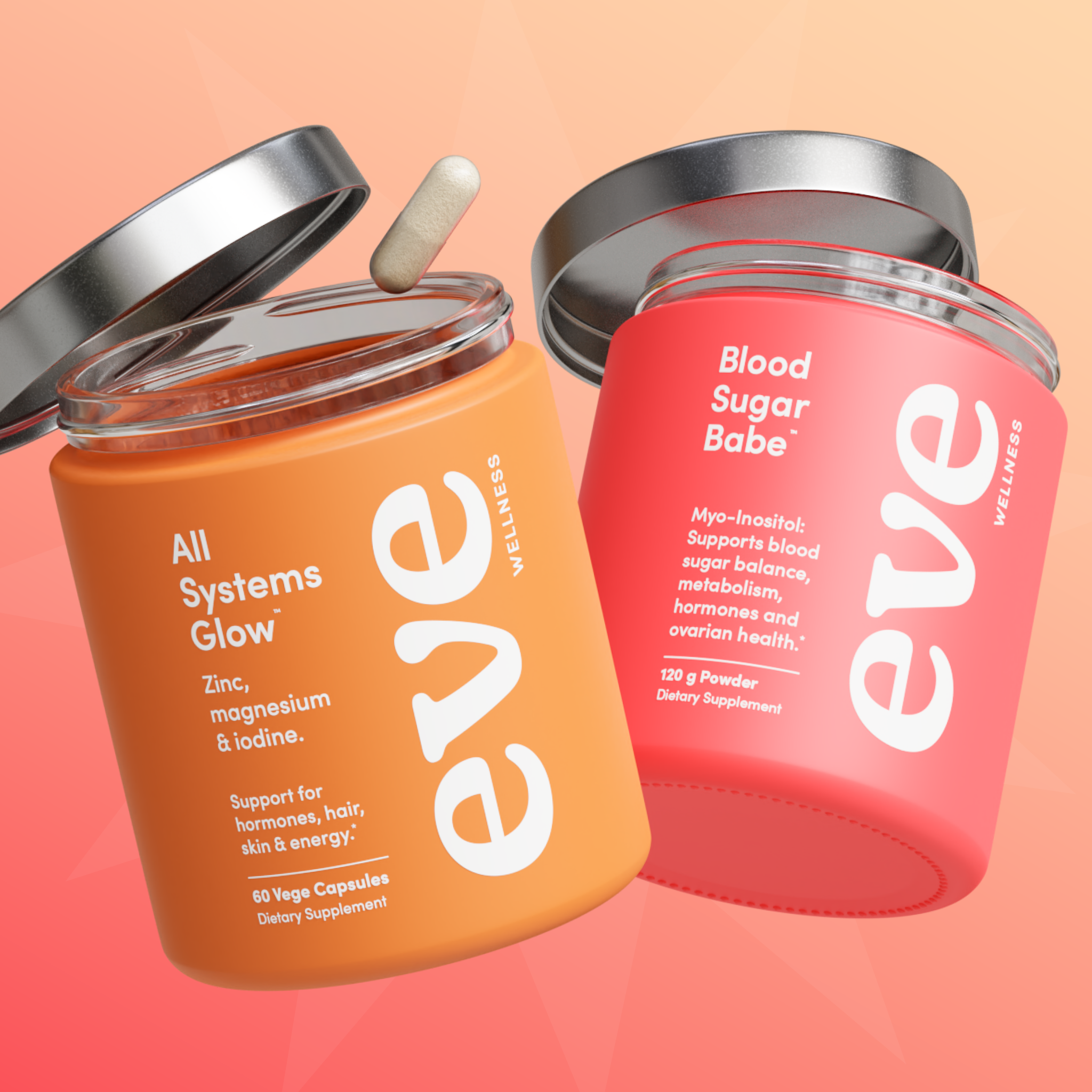Poly-cystic Ovarian Syndrome (or PCOS as it’s more commonly known) is arguably the most common hormone-related condition in women, which is estimated to affect up to 10% of all women of reproductive age in NZ.
It can also be rather confusing - so we’ll try to keep things as simple as possible (without skimping on the important stuff).
WHAT IS PCOS?
PCOS is best defined as high levels of androgens (male hormones) in the body, which can lead to rather unpleasant symptoms such as:
- Weight gain;
- Oily skin and/or acne;
- Irregular or absent periods;
- Hair loss or thinning hair on the head;
- Unwanted body hair growth;
- Difficulty falling pregnant.
Despite its name— it doesn’t actually have a whole lot to do with cysts on the ovaries. Although it’s a condition that affects our hormones, PCOS has roots in metabolic health, inflammation, and adrenal function.
The good news is that PCOS is not a chronic condition, but one that can be healed, reversed and overcome with the right diet, lifestyle and nutritional support.
Here’s what you need to know about the 4 different types of PCOS and how to support each of them.
1. INSULIN-RESISTANT PCOS
Insulin-resistant PCOS is the most common type of PCOS and is the result of high levels of insulin in the body - which can also be referred to as metabolic syndrome or pre-diabetes.
Insulin resistance is what happens when the cells in your muscles, fat and liver stop responding well to insulin, which increases blood sugar levels and forces your pancreas to pump out even more insulin.
Higher levels of circulating insulin increases the production of androgens in women which interferes with ovulation and leads to all of the other fun symptoms of high androgens listed above.
How will I know if this is me?: Along with the signs of androgen-excess, insulin-resistant PCOS can also cause fatigue, brain fog, frequent thirst and urination, and weight gain around the middle. If these signs resonate with you, ask your healthcare professional about testing your insulin levels.
To support insulin-resistant PCOS:
- Eat a lower-carb diet that’s rich in healthy fats and quality proteins to help manage insulin levels.
- Move your body daily with either low-intensity exercise or resistance training to improve insulin sensitivity.
- Supplement with nutrients that also help to support insulin sensitivity, such as magnesium, inositol, and NAC under the guidance of a trusted health professional.
2. POST-PILL PCOS
If your signs of PCOS started a few months after coming off oral contraception, it may simply be a temporary state related to a surge of androgens that are produced as your ovaries kick into gear again.
Oral contraceptives that contain an androgen-suppressing form of progestin such as Yasmin, Yaz or Ginet are often the worst offenders in this department.
Even though it's more of a temporary hormonal state than a medical condition, some women are given a PCOS diagnosis during this time.
How will I know if this is me?: If you have ruled out insulin-resistance, and started experiencing signs of higher androgens within 6 months of coming off hormonal contraceptives, you are most likely dealing with post-pill PCOS.
Post-pill PCOS will generally heal within a few months to a year when supported with the right diet, lifestyle and nutritional support.
To support post-pill PCOS:
- Supplement with quality forms of zinc and vitamin B6. These two nutrients nourish the ovaries and support ovulation. Zinc also helps to calm inflammation and prevents bacteria from growing on the skin. Take Me With The Pill is a multivitamin specifically formulated to support those on the pill and coming off the pill.
- Manage your stress levels by reducing stressors such as caffeine, alcohol, and intense exercise (often easier said than done, we know).
- Eat plenty of cruciferous vegetables, such as broccoli, cauliflower, kale and brussel sprouts which contain a potent phytonutrient called DIM, that supports oestrogen detoxification helps to balance androgens.
- Take a deep breath and know that this is just a phase. Once your ovaries and hormones find their natural rhythm again your androgens will most likely fall back to normal levels.
3. INFLAMMATORY PCOS
Inflammatory PCOS is where chronic inflammation in the body is the primary driver of elevated androgens.
High-level inflammation stemming from an overactive immune system can stimulate the ovaries to make too many androgen hormones, which can interfere with ovulation and lead to irregular periods.
How will I know if this is me?: Someone with inflammatory PCOS does not experience signs of insulin resistance, however they may experience other signs related to high levels of inflammation, such as:
- Persistent fatigue that isn’t remedied with sleep;
- IBS-type bowel irregularities;
- Headaches;
- Joint pain;
- Skin conditions such as eczema, hives or psoriasis.
To support inflammatory PCOS:
- Identify and eliminate foods you are intolerant or sensitive to, the most common offenders are usually gluten and dairy.
- Reduce your exposure to environmental toxins such as pesticides, plastics and conventional skincare, beauty and household cleaning products.
- Look after your gut with zinc, collagen, l-glutamine and probiotic-rich foods. You may also like to get your hands on our gut-loving V Good Probiotics for some extra support.
- Supplement with magnesium to support sleep and help to calm your nervous system. All Systems Glow is a great option for getting this all important mineral in.
4. ADRENAL PCOS
The final type of PCOS is not driven by insulin-resistance, hormonal contraceptive use or inflammation, but rather the body’s response to stress.
Women with adrenal PCOS are either experiencing high levels of stress, or their bodies are reacting abnormally to stress. In either case, they will have high levels of DHEAS—an androgen produced in the adrenal glands— and normal levels of other androgens produced in the ovaries—such as testosterone and androstenedione.
How will I know if this is me?: If you have ruled out insulin-resistance, and testing shows only your DHEAS is elevated and not your other androgens, then you are most likely dealing with adrenal PCOS.
To support adrenal PCOS:
- Prioritise sleep and aim for a minimum of 8 hours per night, to help your body heal and reset stress hormone production.
- Try Chill Pills. 100% high-strength Kava to support stress & anxiety.
- Supplement with magnesium, to nourish your nervous system and support mind and body relaxation.
- Give adaptogenic herbs a go, such as Ashwagandha, Rhodiola and Schisandra which help the body ‘adapt’ to and better respond to stress.
- Start a meditation practise. Meditation is the ultimate practice and tool for quieting your mind, reducing stress levels, and increasing self-awareness—all of which have powerful benefits for both mental and physical health.
OR, IS YOUR PCOS REALLY HYPOTHALAMIC AMENORRHEA?
A typical diagnosis of PCOS by a GP or other healthcare provider is based on meeting any two of the following:
- Raised testosterone, or other androgen hormones in a blood test;
- An ultrasound that shows more follicles on the ovaries than what ‘should’ be there (generally more than 12);
- Absent or irregular periods.
The issue is, there is a huge crossover in the signs of PCOS, and that of Hypothalamic Amenorrhea (the loss of periods due to over-exercising or under-eating), which can also present as absent periods and increased ovarian follicles.
In some cases, Hypothalamic Amenorrhea is often misdiagnosed as “lean PCOS”, which is a huge problem as women that fall into this category will generally need to eat more carbs, not less.
